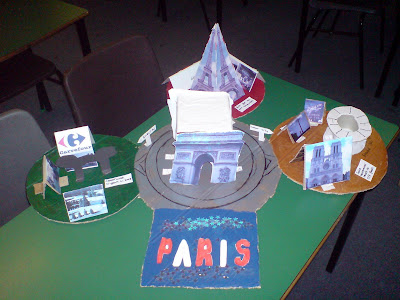Favela folk song follow up
Categories: s1 and s2
Recently, I asked s1 to write a song/poem based on their perceptions of favelas. This was purely based on photographs from flickr, their own thoughts and a very limited class discussion. I felt that this was important, firstly so that I did not influence their perceptions and, secondly, it would give me something to work with when talking about favela improvements in places like Rocinha. Overwhelmingly, the students tales were of hardship, poverty, poor hygiene etc with escapism in the stories of most. I uploaded a couple of the songs to my podcast. Amy and Emma thought that people would be forced to live in dirty conditions and would most likely have to work very hard just to survive. Sian, Megan, Katie and Kate reflected in a bluesy tone on dirty streets , child labour and interestingly, highlighted school and family as a form of escape. Touch of the giggles at the end, but a very good effort :-)
We have since completed our work on favelas, including building our own and looking at changes in favelas. I am sure if we were now to revisit the folk song, many of the same themes would remain but there would probably be some changes to the girls outlook. A really enjoyable activity with some excellent participation. Well done to all involved!












